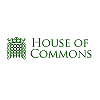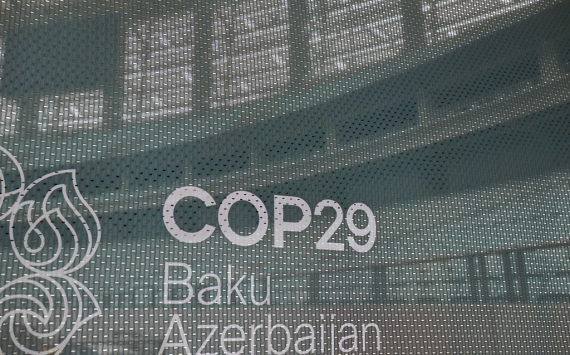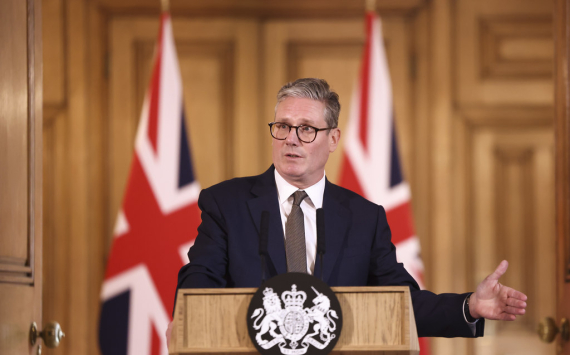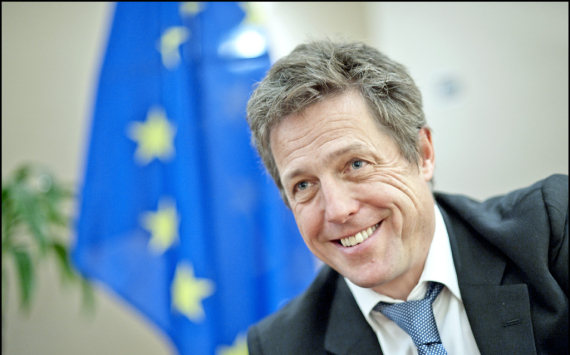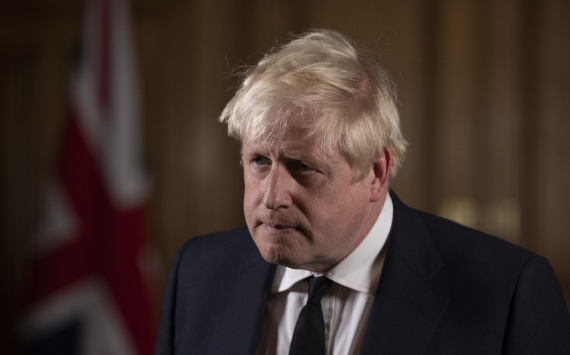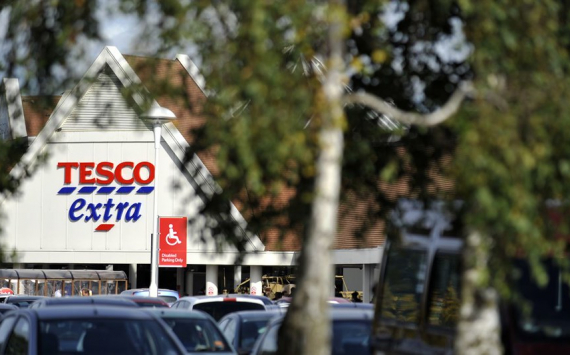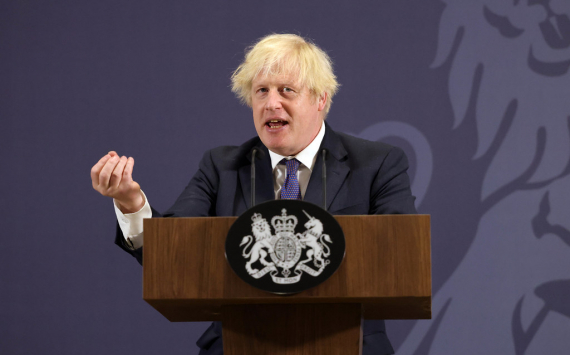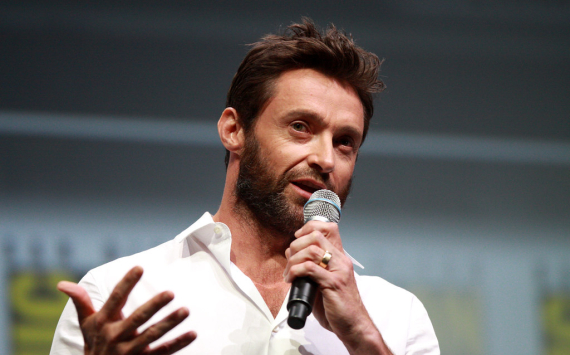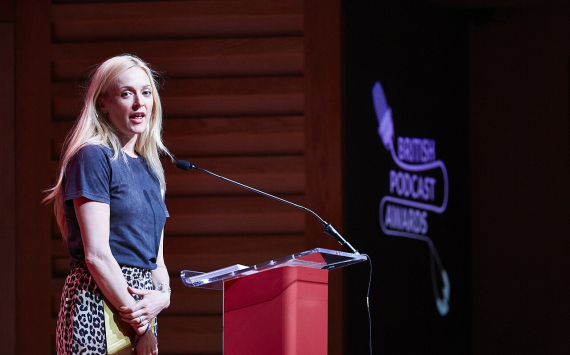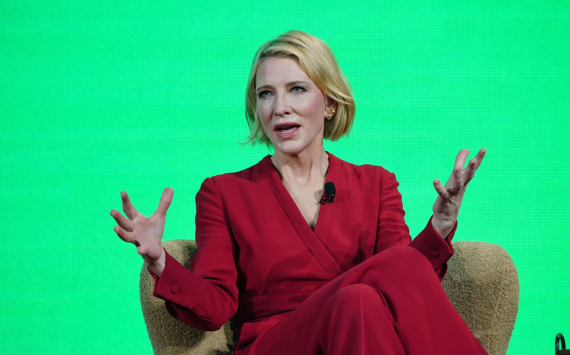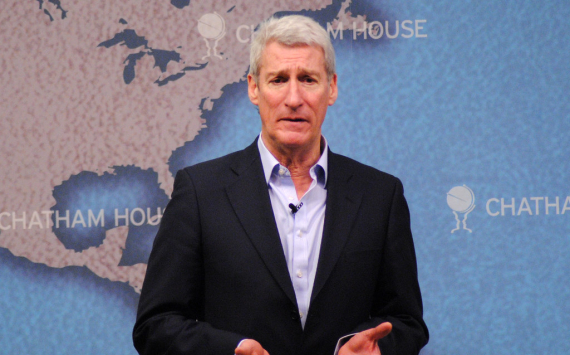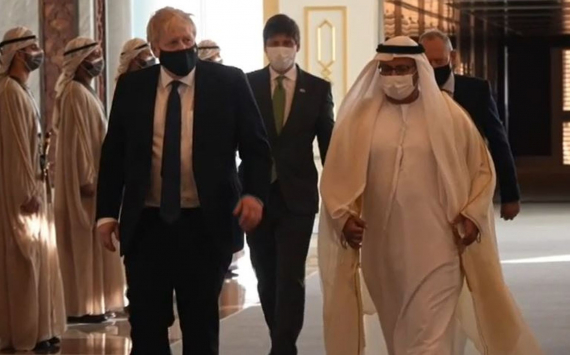
Boris Johnson will hold talks with the leaders of Saudi Arabia and the United Arab Emirates as he bids to end the West's "addiction" to Russian oil and gas.
With Vladimir Putin's increasingly barbaric assault on Ukraine set to enter a third week, the prime minister is visiting the Gulf in a stepping-up of his efforts to starve Moscow of its income from fossil fuels.
Mr Johnson will meet with Crown Prince Mohammed bin Zayed in Abu Dhabi on Wednesday, before travelling to Riyadh to speak with Crown Prince Mohammed bin Salman.
The prime minister is using the trip to try and persuade Gulf states to boost their own production of oil and gas.
Speaking to broadcasters at the Emirates Palace hotel in Abu Dhabi, he said: "When we look at the dependency the West in particular has built up on Putin's hydrocarbons, on Putin's oil and gas, we can see what a mistake that was because he's been able to blackmail the West and hold western economies to ransom - we need independence."
This would allow Western nations to wean themselves off Russian supplies and deal a further financial blow to Moscow.
He said the government would be setting out the energy strategy "next week" to include a "massive jump forward on renewables, more nuclear, using our own hydrocarbons more effectively" and sourcing fossil fuels from outside Russia.
However, Mr Johnson is facing criticism over his trip from both MPs and human rights campaigners - as it comes just days after Saudi Arabia conducted a mass execution of 81 men.
The Saudi crown prince has also been largely shunned by the West since the 2018 murder of journalist Jamal Khashoggi, which he is accused of having ordered.
Just over three years ago, Mr Johnson himself described the killing of Mr Khashoggi as "barbaric act" and suggested the Saudi state had "copied the playbook of Vladimir Putin" with the "ostentatious horror of this murder".
Fears have been expressed that - in seeking to now turn away from Putin's regime - the UK and other Western nations could instead find themselves more reliant on other leaders accused of human rights abuses.
On Wednesday Mr Johnson defended trying to forge closer ties with Saudi Arabia.
Asked about working with a regime with such a questionable human rights record, the PM said: "I've raised all those issues many, many times... since I was foreign secretary and beyond and I'll raise them all again today.
"But we have long, long standing relationships with this part of the world and we need to recognise the very important relationship that we have."
Downing Street said the PM was expected to use Wednesday's visit to discuss with Gulf leaders his current efforts to improve energy security and reduce volatility in energy and food prices amid concerns over a cost of living crisis in the UK.
He tweeted on Wednesday morning to confirm Saudi Arabian investment in greener energy in the UK: "Great news that Alfanar Group is investing £1 billion in the Teesside Lighthouse Green Fuels Project, creating hundreds of jobs to produce sustainable aviation fuel from waste, with the potential to reduce emissions by 80% compared to their fossil fuel equivalent."
The talks will also focus on regional security and humanitarian relief following Russia's invasion of Ukraine, as well as the importance of allies working together to increase the diplomatic and economic pressure on Mr Putin's regime, Number 10 said.
Ahead of his arrival in the UAE, Mr Johnson said: "The brutal and unprovoked assault President Putin has unleashed on Ukraine will have far-reaching consequences for the world, well beyond Europe's borders.
"The UK is building an international coalition to deal with the new reality we face. The world must wean itself off Russian hydrocarbons and starve Putin's addiction to oil and gas.
"Saudi Arabia and the United Arab Emirates are key international partners in that effort.
"We will work with them to ensure regional security, support the humanitarian relief effort and stabilise global energy markets for the longer term."
Number 10 said the prime minister would also discuss shared strategic priorities with the leaders of the UAE and Saudi Arabia, including the current situation in Iran and Yemen, increased security cooperation, trade and investment and supporting human rights and civil society.
Senior Conservative MP Julian Lewis, who chairs Parliament's intelligence and security committee, called on ministers to ensure that "in seeking to lessen our dependence upon one source of oil and gas, we do not end up creating a source dependency on another unreliable and sometimes hostile regime".
Ex-Labour leader Ed Miliband, now the party's shadow climate secretary, said: "It is a sign of our vulnerability and energy insecurity as a country that the prime minister is going to Saudi Arabia to seek an increase in oil production, despite the appalling human rights record of the regime.
"Once again it demonstrates that the best solution to the energy crisis we face is a green energy sprint at home so once and for all we end of our dependence on fossil fuels.
"The best way to tackle the cost of living crisis with Labour's plan for a windfall tax on oil and gas producers to reduce household energy bills."
Katie Fallon, of the Campaign Against Arms Trade, said Mr Johnson's trip "signals that the prime minister plans not only to replicate but to entrench another trading relationship with a murderous regime with no regard for the right to life of their own citizens, yet alone those of another country such as Yemen".
"When we ask ourselves how did Russia feel so emboldened as to invade Ukraine, indiscriminately targeting civilians throughout the first three weeks of this devastating war, the answer lies in decades of silence, excuses and short-sighted self-interest illustrated perfectly by the unconscionable actions of the prime minister," she added.
Mr Johnson will miss Prime Minister's Questions on Wednesday due to his trip, with deputy prime minister Dominic Raab to stand in for him in the House of Commons.







